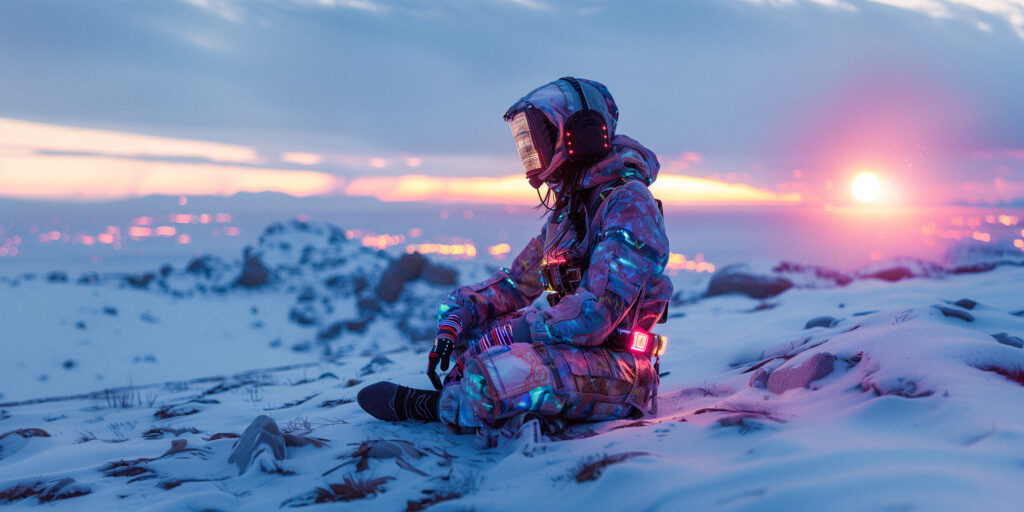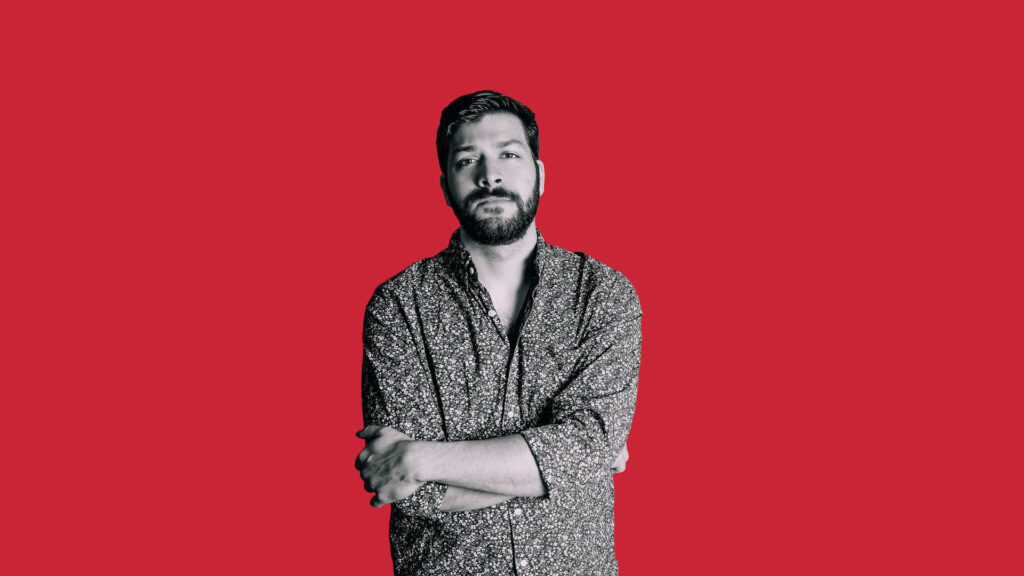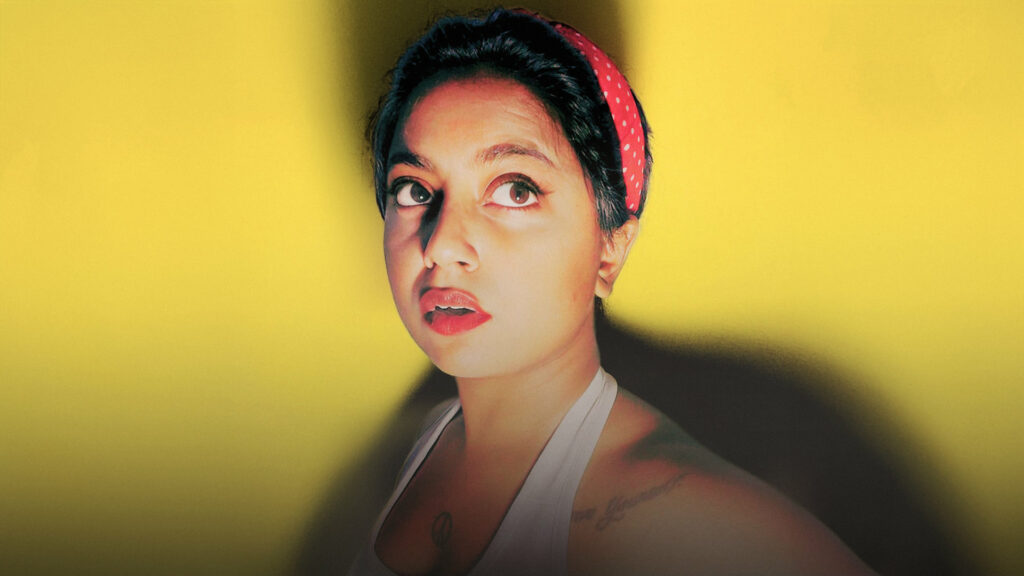When I lived in Kampala, Uganda, I was never stuck for something to do when it came to a night out. Both swanky clubs and edgier warehouses were only a short boda boda (motorcycle taxi) ride away, and the vibes were always great in both. However, while the venues varied, at some point – whether I was at a salsa club or a jazz night, the music would always turn to Afrobeats.
And as someone who had only been about for a short time, I wasn’t complaining. But after talking to my new friends, it became apparent that those in the city were yearning for something different. Enter Richard O’doi and his techno night Underground Kampala.
The love for techno in Uganda is well documented. Nyege Nyege is East Africa’s largest festival and attracts over ten thousand electronic music fans from across the continent and beyond each year. However, its yearly status left a gap.
“Nyege Nyege created the foundations for the electronic scene here, and in the last two years, we’ve seen some committed creatives who want to push boundaries,” Richard tells me over Zoom. He explains that musicians and collectives became even more dedicated after visiting cities in Kenya and realising what a fully-fledged electronic scene could look like.
“Nairobi used to be a techno hub; now Kampala has taken a stronghold,” he tells me, smiling. “DJs, promoters and artists are forming more of a collective bond than they’ve had. They’re driven by a passion for the music rather than seeing it as a commercial venture.”
Richard and Underground Kampala have been instrumental in this development; having been around for over four years, they’re responsible for ushering in much of this change. Interestingly, despite their impact, the project had rather humble beginnings: just a few of Richard’s friends taking him out of the city for his birthday to listen to uninterrupted techno.
“We had such a good time I felt I needed to share the vibes with more people,” he tells me.
Richard had always felt the need to spread his love for techno around. “My friends hated it when I had the aux cable; I was constantly shoving tracks down their throats,” he laughs. However, they’re all solid fans; some even volunteer with Richard at Underground Kampala nights.
His love came from his dad. “He was a vinyl collector and always played me records when I was young. I hated them then, but after a while, I would catch myself waiting for the drop in the track”.
I asked Richard what specific techno record stood out to him as the first time he knew he loved the genre. “I still have it, actually,” he tells me, smiling and pulls out Michel de Hey vs Grooveyard Compound (Shindoe Remix).
After that fateful birthday gathering, Richard started setting up WhatsApp groups and sending out invites. “I wanted people to have a place away from the aggression of the city to express themselves,” he says.
However, slightly paradoxically, the night didn’t truly get off its feet until lockdown. Public transportation wasn’t running during the pandemic – only tourist vehicles were allowed to operate. Richard and his friends took advantage of this. “We’d pretend to be tourists, put on safari hats and say we were going to Murchison Falls,” he laughs. “We’d hide our sound systems and mixers in the boot and drive out of town. Put up our tents, take out our decks and party with no restrictions.”
Since the pandemic, the night has only grown. Moving back into the city, Richard now opts for rooftops rather than campsites for his venues. He’s collaborated with big names like Beneath the Baobabs Festival in Kenya, attracting over 750 revellers to his latest rooftop/basement hybrid night.
I ask him if he worries the night will grow beyond its underground status. “Sometimes,” he replies thoughtfully. “But you just have to keep the vision strong. I have the blueprints in my head of how I want to direct this rave scene. I’ll never work with big sponsors who would take away my creativity. I need to make sure I can still call the shots.”
One way in which Richard retains control of the night is through cultivating a strong community around it. He does this by reserving 60% of the night’s tickets for his ‘die-hard’ fans – putting them out over a Telegram network. He’s also working on merchandise so Underground Kampala fans can recognise each other beyond the rave.
However, the most significant way Richard fosters community is by prioritising safety. He employs safety and awareness officers from within the rave’s community, which people can go to if they need any help – from over-intoxication to harassment. “They’re not bouncers, who tend to be big and scary,” he explains. “These people are Friendly faces, ravers themselves, so they know what’s going on.”
The increasing restrictions on nightlife spaces born from the newest iteration of the Anti-Homosexuality Act passed this year has also meant that creating safe spaces has never been more critical. While challenging to discuss, Richard makes it clear that safeguarding his attendees is a top priority. “Events like this, you must be specific with how you create your nights and why,” he explains. “The kind of music and atmosphere you’re creating must be clear so whoever is attending knows what to expect and how to feel about it.”
Much like a chrysalis, this safe space of expression has spawned new nights like Disco Tronic Kampala, a funky house-centric night organised by Richard’s old artist liaison.
DJs have also cut their teeth here, with Richard operating an open sign-up form for most of his DJs for each event. “We can’t operate as a school”, he explains, “but we try to give as much feedback as possible.” Some DJs who have come up alongside Rich include Thii, a Tech House DJ and curator of The Room Residente, and Hola Jefe, who founded the event Soul Tribe. With this wealth of talent, it’s clear that techno has well and indeed found a home in Kampala.
So, what about the genre that has truly captured this city’s heart? For Richard, it’s what it represents: freedom. “I can just be in the club listening and just flow. It’s like I’m rebelling against everything happening sideways in my life. You can move however you want to – it’s the space where you can ultimately be yourself.”
Next story


